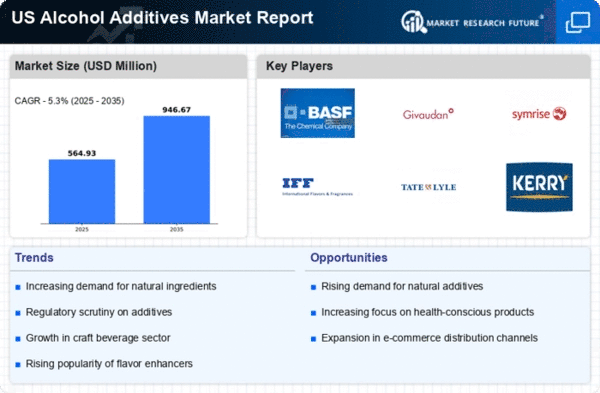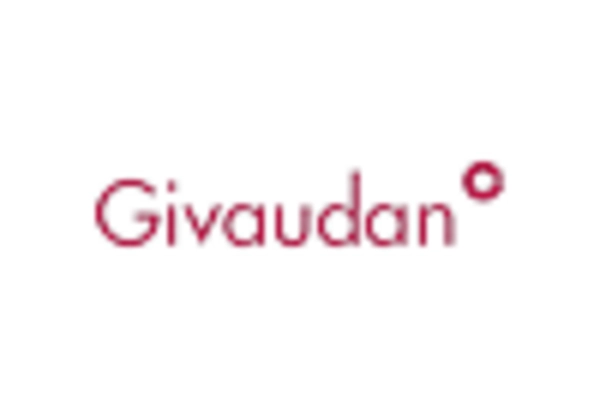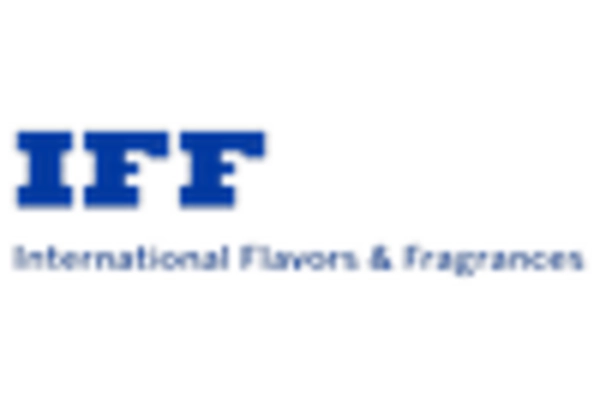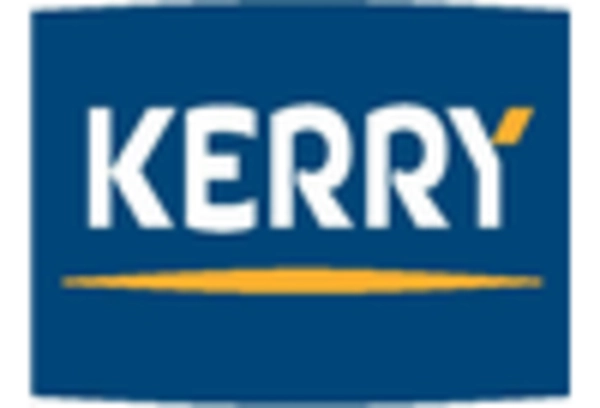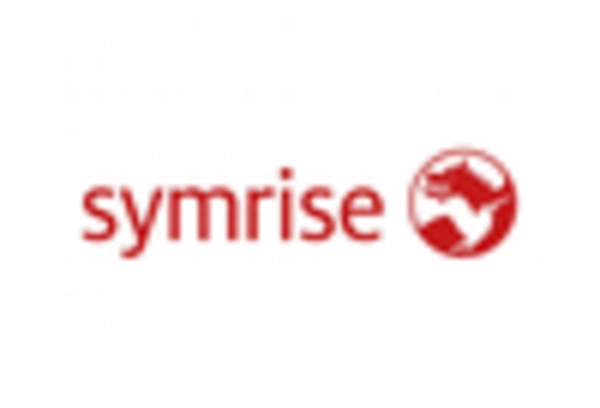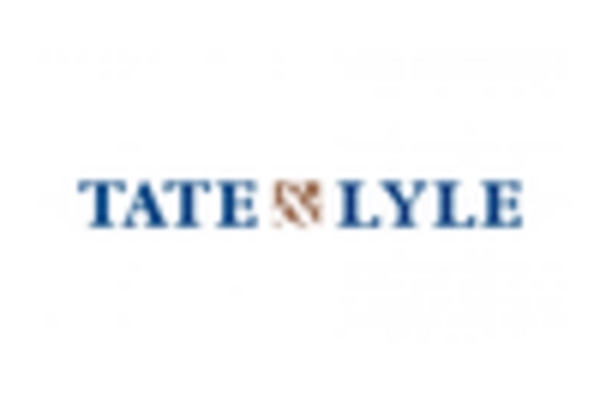Expansion of the E-commerce Sector
The expansion of the e-commerce sector significantly impacts the alcohol additives market. With the rise of online shopping, consumers have greater access to a wider variety of alcoholic beverages and additives. This trend is particularly pronounced among younger demographics, who prefer the convenience of purchasing products online. In 2025, it is projected that online sales of alcoholic beverages will account for nearly 30% of total sales in the US. This shift encourages manufacturers to invest in digital marketing strategies and enhance their online presence, thereby increasing visibility for their products. Consequently, the alcohol additives market benefits from this trend as more consumers discover and purchase innovative additives through e-commerce platforms, leading to increased sales and market penetration.
Growing Consumer Demand for Quality
The alcohol additives market experiences a notable surge in consumer demand for high-quality products. As consumers become increasingly discerning, they seek beverages that not only taste good but also contain premium ingredients. This trend is reflected in the rising sales of craft spirits, which often utilize specialized additives to enhance flavor and aroma. In 2025, the craft spirits segment is projected to account for approximately 25% of the total alcohol market in the US, indicating a shift towards quality. This growing preference for quality drives manufacturers to innovate and incorporate unique additives, thereby expanding the alcohol additives market. Furthermore, the emphasis on quality aligns with broader consumer trends favoring transparency and authenticity in food and beverage choices.
Sustainability Trends in Production
Sustainability trends are increasingly influencing the alcohol additives market. As environmental concerns grow, consumers are more inclined to support brands that prioritize sustainable practices. This shift has prompted manufacturers to seek eco-friendly additives and production methods, such as sourcing natural ingredients and reducing waste. In 2025, it is estimated that products marketed as sustainable will represent about 20% of the alcohol market in the US. This trend not only aligns with consumer values but also encourages innovation in the alcohol additives market, as companies strive to develop sustainable solutions that meet regulatory standards and consumer expectations. By adopting sustainable practices, brands can enhance their reputation and appeal to a broader audience, ultimately driving growth in the market.
Health Consciousness Among Consumers
The alcohol additives market is significantly influenced by the increasing health consciousness among consumers. As individuals become more aware of the health implications of their dietary choices, there is a growing demand for low-calorie and low-sugar alcoholic beverages. This shift has prompted manufacturers to develop additives that enhance flavor without compromising health. For instance, the use of natural sweeteners and flavor enhancers is on the rise, catering to the health-oriented consumer base. In 2025, it is estimated that beverages labeled as 'low-calorie' will represent around 15% of the total alcohol sales in the US. This trend drives innovation in the alcohol additives market and encourages brands to reformulate their products to meet evolving consumer preferences.
Technological Advancements in Production
Technological advancements play a crucial role in shaping the alcohol additives market. Innovations in production techniques, such as the use of advanced extraction methods and fermentation technologies, enable manufacturers to create more effective and diverse additives. These technologies allow for the precise control of flavor profiles and the enhancement of product quality. For example, the implementation of biotechnology in the fermentation process can lead to the development of unique flavor compounds that appeal to modern consumers. As of 2025, it is anticipated that the adoption of such technologies will increase by approximately 20%, further driving growth in the alcohol additives market. This technological evolution not only enhances product offerings but also improves operational efficiency, allowing companies to respond swiftly to market demands.


